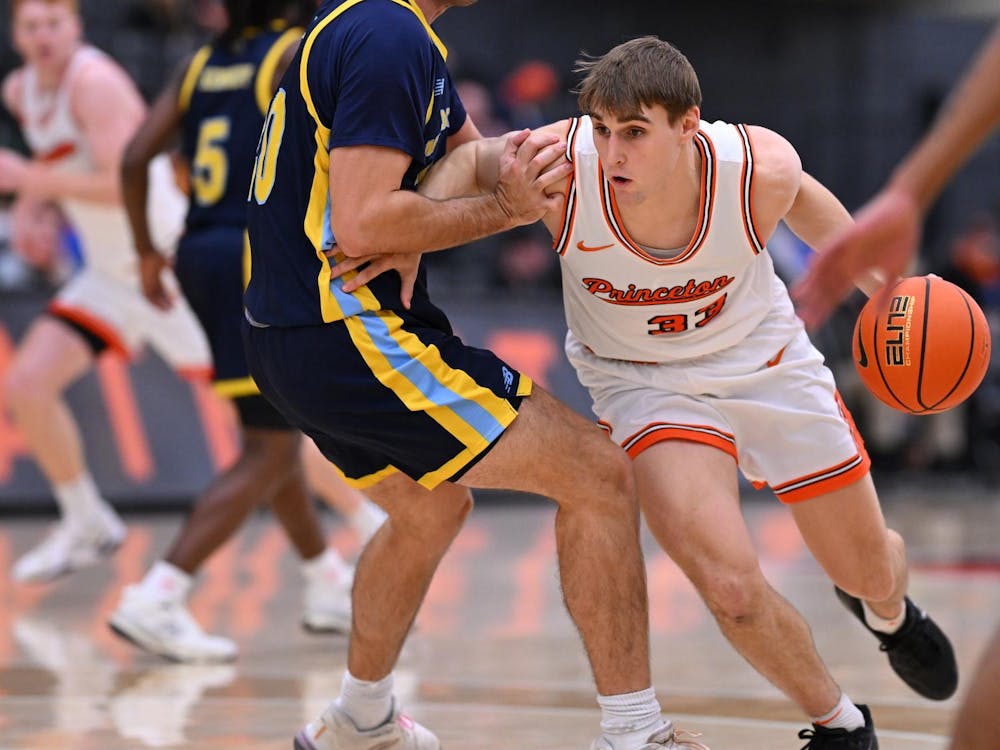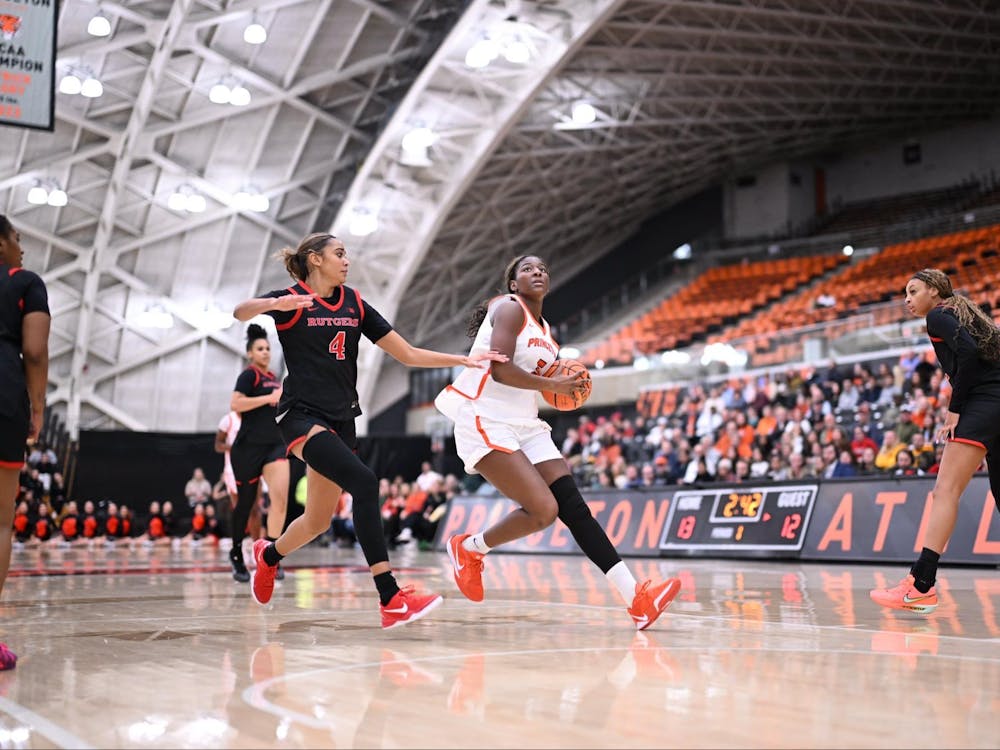Men's basketball in the Ivy League is like the Cold War. Just as the United States and the Soviet Union competed for supremacy in every way, from nuclear arsenals to ice hockey, Penn and Princeton battle on all possible fronts. The Tigers won both of last year's superpower showdowns and claimed the Ivy crown.
The two universities battle for prized recruits around the country, while the two nations wined and dined Third World leaders in an effort to secure support. The Tigers and Quakers have to fight a series of proxy wars, against teams like Yale and Columbia, in anticipation of a showdown that seems to decide the Ivy title year after year.
Occasionally, one of the teams gets bogged down in a quagmire in Vietnam or Afghanistan, but more often than not, it comes down to a game at the Palestra or Jadwin Gym to decide who receives the Ivy League's automatic bid to the Big Dance.
These year, however, Brown (or China, if you prefer) wants to break up the bipolar system and make a run at the championship. The Bears are a trendy pick to win the Ivy League, with even ESPN.com jumping on their bandwagon.
Brown has historically been a pathetic basketball school — in 94 years, the Bears have won at least 15 games five times. One of those 'storied seasons' was last year and Brown returns all of its starters from its best team since 1986. Chairman Mao is versatile guard Earl Hunt, who last year was the top sophomore scorer in Ivy history. Hunt is joined by forward/center Alaviaa Nuualiitia, who led the conference in field-goal percentage and finished second in rebounding.
Brown tied with Penn for second in the league last year at 9-5. The Quakers finished just one point behind the Bears in the Ivy League's preseason media poll and are expected to challenge Princeton and Brown for Ivy League supremacy. The Quakers fear being upstaged by one of the league's lesser powers and being reduced to strategic irrelevance.
"I think the league is very strong," Princeton head coach John Thompson '88 said. "I think it is an experienced league."
If Penn is to remain an Ivy superpower against improved competition, it needs an immediate impact from Elon College-transfer Andy Toole.

"The Penn team talent-wise is terrific when you throw Toole into it and he solves a lot of questions they had coming in," Thompson said.
Just as the superpowers were engaged in an ever-esclating arms race, Penn needs to reload in its backcourt. Toole will need to step in at guard and should put points on the scoreboard. The Quakers' strength in terms of returning players comes at forward - the tanks, if you will - with Ugonna Onyekwe and Koko Archibong.
Although Penn, Brown and Princeton draw the headlines, Columbia is lurking in the background, hoping for a chance to show it can compete in the Ivy League arms race.
"You look at the Columbia team and Armond [Hill '85] has a core group of seniors returning," Thompson said. "We're one of the teams that I look at that has unanswered questions."

The Lions return all five starters and 12 of 13 letterwinners, headed by forward Craig Austin, who led the league in scoring during conference matchups. Like Brown, however, Columbia also has history to contend with.
The Lions haven't won the league since 1968 and haven't even reached .500 since 1993. Although they managed to knock off both of the great powers in back-to-back games last year, the Lions probably don't have the weapons to challenge one of this year's top three teams game-to-game. After Columbia, the league's quality falls off.
Harvard and Yale both posted respectable 7-7 conference marks last season, but both teams have lost their key player from the 2000-2001 season - Dan Clemente and Neil Yanke, respectively, to graduation. The Elis and Crimson will try to play the role of spoiler against the conference's elite and attempt to finish in the top half of the league.
Finally, Cornell and Dartmouth finished tied in the Ivy cellar last season at 3-11. Both the Big Red and the Big Green are retooling for the future with young lineups. The Tigers will need to watch out for Cornell and Dartmouth, though - both teams managed to trip up superpower Princeton last season.
The Cold War ended with the fall of the Soviet Union and a unipolar world. Will Princeton and Penn continue to tussle with each other for Ivy supremacy, will Brown or another team finally make the conference a multipolar system, or might a team distance itself from the others and reach hegemony?







